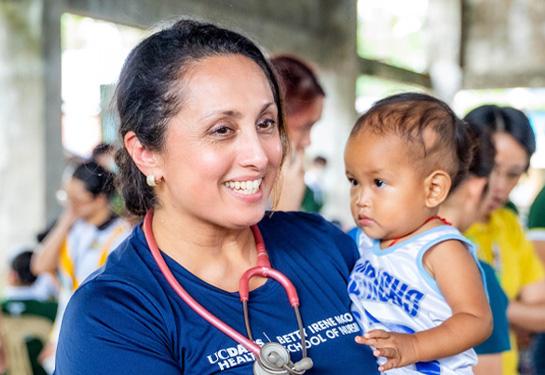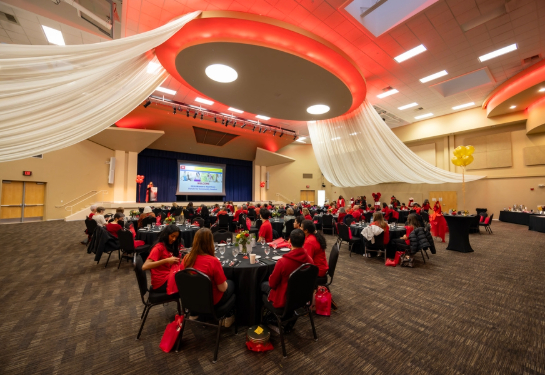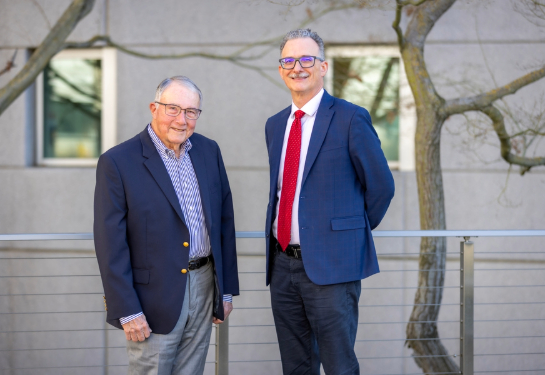Comprehensive Heart Failure Program enhances care for patients through remote monitoring
Remote monitoring programs may enhance guideline-directed therapy — or the use of heart medication — for heart failure patients. That was the finding of cardiologists with the Comprehensive Heart Failure Program at UC Davis Health in a recent study published in Frontiers in Cardiovascular Medicine.

The research team assessed the effectiveness of a remote optimization clinic program that used remote monitoring to improve care of patients with heart failure. They looked at the impact on health care delivery, outcomes, including longevity, and reduction of hospital readmissions.
“Heart failure is a growing health crisis that demands innovative solutions,” said Martin Cadeiras, associate professor and medical director for the Advanced Heart Failure, Heart Transplantation and Mechanical Circulatory Support Device Program. “At UC Davis Health, we are working to provide heart failure patients life-extending options that can reduce hospitalizations and improve their quality of life.”
Patient care delivery improves through remote care
The first signs that Paula Molina de Hernandez was suffering from heart failure included shortness of breath, swelling in her legs and a rapid heartbeat despite lying down. At a hospital near her hometown of Bay Point, in the East Bay, she was treated for heart failure. But she continued to have frequent hospitalizations due to fluid retention and shortness of breath.
Heart failure occurs when the heart cannot pump enough blood to meet the body’s demands. Patients feel weak, congested and fatigued. Poor blood flow causes fluid buildup around the heart, lungs and other parts of the body. Over 6million Americans are living with heart failure today. It is one of the most common reasons people 65 and older go into the hospital.
Over the next few months, Hernandez returned to the emergency room 15 times for the same symptoms. She began to feel like she was struggling with a bigger problem.
“When I would go to the hospital, I would tell them I felt like I was getting worse rather than better,” remembered Hernandez. “That's when I was referred to UC Davis to establish my care.”
At UC Davis Health, Hernandez was evaluated by the heart failure team and after several tests, it was felt that she could benefit from a comprehensive care management plan.
“Cardiomyopathy is a disease of the heart muscle which makes it harder for the heart to pump blood to the rest of your body and can lead to heart failure,” explained Cadeiras. “It is a progressive condition, meaning it usually worsens over time. So, it was important for us to treat Paula as soon as possible.”
Hernandez began a medical optimization program created by the Comprehensive Heart Failure Program, which aims to improve patient outcomes. Assisted by remote monitoring, the team was able to monitor her heart and communicate with her during virtual visits.
“It was so easy to work with my doctors because of the remote monitoring and virtual visits,” Hernandez said. “My daughter set up everything for me and I was able to be followed very closely by the clinic despite living far away.”
UC Davis heart surgeons then performed a mitral clip procedure on Hernandez. Doctors accessed her mitral valve with a catheter that was guided through a vein in the leg to reach her heart. Then they attached a small, implanted clip to her mitral valve to help it close more completely.
“I started to feel better as soon as I was discharged,” Hernandez said.
Following her procedure, the Comprehensive Heart Failure team continues to treat Hernandez remotely through remote monitoring, lab work and virtual visits, being able to come to the clinic less frequently.
“I feel so safe being monitored remotely because if something is wrong, I know my team will call me even if it is a weekend,” Hernandez said. “I wish more people knew about the program and that despite where you live you are eligible to be treated by UC Davis heart specialists.”
The first authors of the study were Eric Romero, a graduate of the Master of Advanced Study in Clinical Research program at UC Davis and Stella Yala, a heart failure specialist spearheading the guideline-directed therapy optimization clinic.



